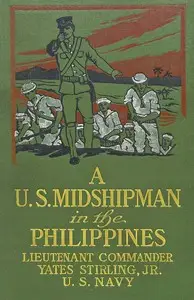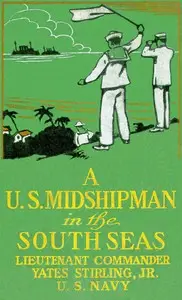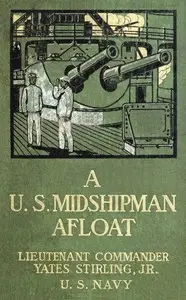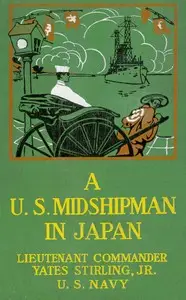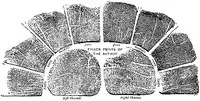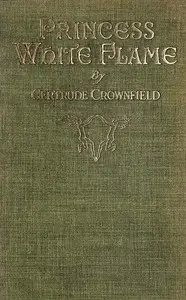"A United States Midshipman in China" by Lt. Com. Yates Stirling Jr. U.S.N. is a historical novel written in the early 20th century. The story follows midshipman Philip Perry and his friend Sydney Monroe as they navigate the complex and perilous waters of late 19th-century China, where foreigners face increasing hostility amid political upheaval. As they serve on the U.S. gunboat "Phœnix," the narrative captures their adventures and the challenges they face in safeguarding various missions and lives within a strained diplomatic climate. At the start of the book, readers are introduced to the setting, the Yangtse River, with Philip Perry and Sydney Monroe keenly observing the potential dangers of their surroundings. Upon hearing about the violent viceroy and the increasing threats against foreigners, they become embroiled in a series of events that lead to a dramatic rescue attempt. After an incident involving a drowning man, Philip's courage shines through when he saves the drowning Chinaman, which leads to greater complications as they learn about a potential uprising against the mission they are tasked to protect. Their journey begins to unfold against a backdrop of imminent danger, secrecy, and treachery, setting the tone for an intricate narrative filled with action and intrigue. (This is an automatically generated summary.)
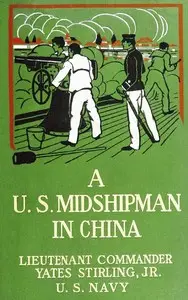
A United States Midshipman in China
By Yates Stirling
"A United States Midshipman in China" by Lt. Com. Yates Stirling Jr. U.S.N. is a historical novel written in the early 20th century. The story follows...
Yates Stirling Jr. was a decorated and controversial rear admiral in the United States Navy whose 44-year career spanned from several years before the Spanish–American War to the mid-1930s. He was awarded the Navy Cross and French Legion of Honor for distinguished service during World War I. The elder son of Rear Admiral Yates Stirling, he was an outspoken advocate of American sea power as a strong deterrent to war and to protect and promote international commerce. During Stirling's naval career and following retirement, he was a frequent lecturer, newspaper columnist and author of numerous books and articles, including his memoirs, Sea Duty: The Memoirs of a Fighting Admiral, published in 1939. Describing himself, Stirling wrote, "All my life I have been called a stormy petrel. I have never hesitated to use the pen to reveal what I considered should be brought to public attention, usually within the Navy, but often to a wider public. I seem to see some benefits that have come through those efforts. I have always believed that a naval man is disloyal to his country if he does not reveal acts that are doing harm to his service and show, if he can, how to remedy the fault. An efficient Navy cannot be run with 'yes men' only."


